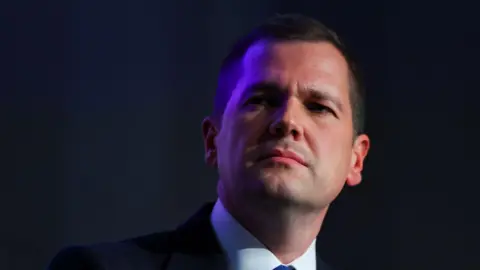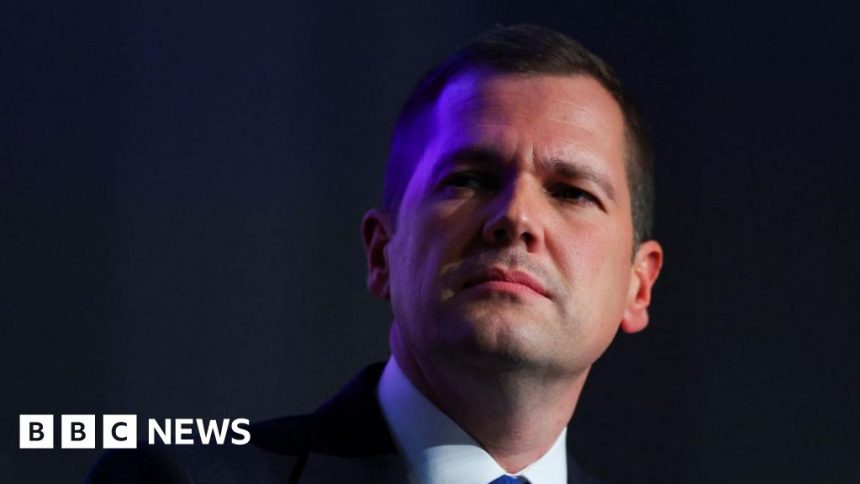Jenrick faces backlash over special forces killing claim
 Reuters
ReutersTory leadership contender Robert Jenrick has defended his claim that British special forces are “killing rather than capturing terrorists”.
The former immigration minister made the comment in a video promoting his bid to be the party’s leader.
The claims have prompted criticism from Conservative leadership rivals James Cleverly and Tom Tugendhat, who have both served in the Army, during their party’s annual conference.
Tugendhat said the comments were “wrong” and showed a “misunderstanding of military operations and the law of armed conflict”.
“I’m extremely concerned that such words should not be seen in any way to encourage people to take any action other than surrender to British forces when asked to do so,” Tugendhat said.
Cleverly said Jenrick should justify his claims.
“The British military always abide by international humanitarian law, the law of armed conflict,” Clevery said.
He added: “Our military do not murder people.”
In the video Jenrick made the claim, he called for the UK to leave the European Convention on Human Rights (ECHR).
The ECHR is a treaty which sets out the rights and freedoms people are entitled to in countries that are signed up to it.
The treaty is overseen by the European Court of Human Rights in Strasbourg, France.
Allow Twitter content?
and
before accepting. To view this content choose ‘accept and continue’.
In the video, Jenrick said: “Our special forces are killing rather than capturing terrorists because our lawyers tell us that if they’re caught, the European court will set them free.”
In an interview on BBC Radio 4’s Today programme, Jenrick was asked what evidence he had to back up his claims.
He said: “The point I was making was one that our former defence secretary Ben Wallace has made, which is that our human rights apparatus including the ECHR is encroaching on the battlefield.
“And it is impacting the decisions that our generals and military decision-makers are taking as to what kind of action is required in these difficult situations.”
Pressed on whether he knew special forces were killing rather than capturing terrorists, Mr Jenrick said: “As Ben Wallace has said in that interview, decision makers are being asked to make decisions which they might not ordinarily make, for example to call in a drone strike and take lethal action in that way.”
He added: “Of course I’m not going to elaborate on particular cases because these things, these cases are not things that any minister can speak about.”
In an article last year, Wallace – the former defence secretary – claimed human rights laws including the ECHR had become a serious risk to national security.
He told the Telegraph: “When we have a threat to the UK, this lunacy of being unable to render people across borders or arrest people in countries whose police forces are unacceptable means that we are more often than not forced into taking lethal action than actually raiding and detaining.”
The role of the ECHR has long been a topic of intense debate within the Conservative Party.
MPs on the right of the party have increasingly blamed the convention for enabling failed asylum seekers to challenge their removal from the UK.
Jenrick and former home secretary Suella Braverman are among those who have called for the UK to withdraw from the treaty to avoid this.
But other Tories oppose this.
It has been a dividing line between the leadership candidates at the party’s conference in Birmingham.
On Monday, fellow leadership contender Kemi Badenoch warned party members that leaving the ECHR would not address “the root of the problem”, saying it could result in Brexit-style “legal wrangling”.
She did not rule out leaving the treaty, but argued deporting more failed asylum seekers should be the priority.






